Leading Leadership Development: Insights from Return on Investment Research – SUNFLOWER ROOM – KHF 2nd Floor – Friday 9:30 – 10:30 am – Collaborative Note Taking Google Doc
Discover how to maximize the impact of leadership development initiatives drawn from 17 years of applied research: what makes initiatives successful and where do they derail from creating value? Case studies will explore value creation in terms of intangibles and monetary return on investment. Learn what you can do to increase the impact and business value of your leadership development efforts.
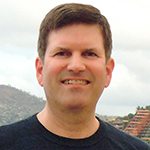 Merrill Anderson is a leadership coach and organization change consultant with over thirty years experience drawn from both Fortune 500 leadership positions and consulting. He is currently a principal of MomentaCOACH, a professional services firm that offers coaching-based leadership development and award-winning MetrixGlobal evaluation services. He may be reached at [email protected].
Merrill Anderson is a leadership coach and organization change consultant with over thirty years experience drawn from both Fortune 500 leadership positions and consulting. He is currently a principal of MomentaCOACH, a professional services firm that offers coaching-based leadership development and award-winning MetrixGlobal evaluation services. He may be reached at [email protected].
PowerPoint Slides (pdf)
Dangers of Case-in-Point and Adaptive Leadership with Reo Watanabe – FLINT HILLS ROOM – KLC 2nd Floor East – Friday 9:30 – 10:30 am – Collaborative Note Taking Google Doc
The purpose of this session is to discuss and explore the growing challenges of teaching adaptive leadership and using the Case-in-Point pedagogy. Otto Scharmer cautions that our world is polarizing economically, socially, and even psychologically. Those dynamics cause tension and resistance among people in the U.S. and many other places in the world. As Case-in-Point mirrors such dynamics in the classroom, teaching adaptive leadership becomes a challenging task. In this session, the participants will understand the importance of paying a more attention to the growing dynamics in the world when we teach adaptive leadership.
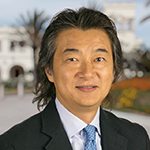 Ryosuke (Reo) Watanabe is a serial entrepreneur in both business and academia. He now focuses on leadership development to create a better world. He is a strong believer of experiential learning including case-in-point. At Harvard, Reo learned adaptive leadership from Ronald Heifetz and adult development from Robert Kegan. He teaches adaptive leadership in the U.S. and Japan. He is pursuing his Ph.D. in leadership at the University of San Diego, the oldest doctoral program in leadership studies in the U.S. Reo holds an MPA in leadership from the Harvard Kennedy School and an MBA in marketing from the Wharton School at the University of Pennsylvania.
Ryosuke (Reo) Watanabe is a serial entrepreneur in both business and academia. He now focuses on leadership development to create a better world. He is a strong believer of experiential learning including case-in-point. At Harvard, Reo learned adaptive leadership from Ronald Heifetz and adult development from Robert Kegan. He teaches adaptive leadership in the U.S. and Japan. He is pursuing his Ph.D. in leadership at the University of San Diego, the oldest doctoral program in leadership studies in the U.S. Reo holds an MPA in leadership from the Harvard Kennedy School and an MBA in marketing from the Wharton School at the University of Pennsylvania.
Case Analysis Worksheet (pdf) – PowerPoint Slides (pdf)
Research: Leadership Method as Mode of Inquiry & Development – HIGH PLAINS ROOM – KLC 2nd Floor West – Friday 9:30 – 10:30 am – Collaborative Note Taking Google Doc
The purpose of this session is to explore and expand boundaries between research methods for studying leadership activity (leadership inquiry) and approaches to leadership development (leadership development practice). Leadership activity that makes progress on adaptive challenges requires new learning, recognizing values and loyalties, and constructing new ways of being. A primary assumption is that learning and development is not simply an individual exercise, but socially constructed through relationships and communities. This session advances our understanding of leadership in civic contexts by exploring how community-engaged scholarship methods serve as both a mode of leadership inquiry and develop leadership capacity.
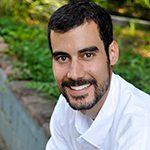 Brandon W. Kliewer, Ph.D. is an assistant professor of civic leadership in the Mary Lynn and Warren Staley School of Leadership Studies at Kansas State University. Brandon studies civic leadership through the lens of leadership coaching, deliberative civic engagement, democratic theory, and approaches to inquiry that include forms of community-engaged scholarship that focus on collaboration and partnership. Brandon holds a Ph.D. from The University of Georgia in political science and a Master’s degree in political science from Virginia Polytechnic Institute and State University. He can be reached at [email protected].
Brandon W. Kliewer, Ph.D. is an assistant professor of civic leadership in the Mary Lynn and Warren Staley School of Leadership Studies at Kansas State University. Brandon studies civic leadership through the lens of leadership coaching, deliberative civic engagement, democratic theory, and approaches to inquiry that include forms of community-engaged scholarship that focus on collaboration and partnership. Brandon holds a Ph.D. from The University of Georgia in political science and a Master’s degree in political science from Virginia Polytechnic Institute and State University. He can be reached at [email protected].
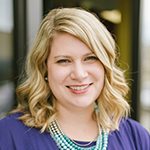 Kerry L. Priest, Ph.D. is an Associate Professor in the Mary Lynn and Warren Staley School of Leadership Studies at Kansas State University. Her undergraduate and graduate courses focus on civic leadership development, socially responsible leadership, and community engagement. Kerry’s research agenda explores the intersections of leadership development and engaged teaching and learning in higher education, with an emphasis on questions that emerge from interpretative, collaborative frameworks of social change. She is currently working on scholarship advancing leadership educator professional identity development and community-engaged methods for leadership education. She can be reached at [email protected].
Kerry L. Priest, Ph.D. is an Associate Professor in the Mary Lynn and Warren Staley School of Leadership Studies at Kansas State University. Her undergraduate and graduate courses focus on civic leadership development, socially responsible leadership, and community engagement. Kerry’s research agenda explores the intersections of leadership development and engaged teaching and learning in higher education, with an emphasis on questions that emerge from interpretative, collaborative frameworks of social change. She is currently working on scholarship advancing leadership educator professional identity development and community-engaged methods for leadership education. She can be reached at [email protected].
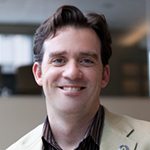 Tim Steffensmeier, Ph.D. is the director of research at the Kansas Leadership Center (KLC). This is a joint appointment with Kansas State University where he is an associate professor and director of the Leadership Communication doctoral program at the Staley School of Leadership Studies. Steffensmeier’s publications focus on civic leadership, public deliberation, and rhetoric. This research has been grant funded by the National Science Foundation, Kettering Foundation, and Interactivity Foundation. Tim brings consulting experience with companies and communities on leadership development and communication skills. This includes serving as faculty for KLC since 2010. Tim is a former department head of Communication Studies at Kansas State University and served as editor for the Journal of Public Deliberation. Tim has a Ph.D. from the University of Texas, Austin and an M.A. from Wake Forest University.
Tim Steffensmeier, Ph.D. is the director of research at the Kansas Leadership Center (KLC). This is a joint appointment with Kansas State University where he is an associate professor and director of the Leadership Communication doctoral program at the Staley School of Leadership Studies. Steffensmeier’s publications focus on civic leadership, public deliberation, and rhetoric. This research has been grant funded by the National Science Foundation, Kettering Foundation, and Interactivity Foundation. Tim brings consulting experience with companies and communities on leadership development and communication skills. This includes serving as faculty for KLC since 2010. Tim is a former department head of Communication Studies at Kansas State University and served as editor for the Journal of Public Deliberation. Tim has a Ph.D. from the University of Texas, Austin and an M.A. from Wake Forest University.
Facilitating Self-Efficacy using Props and Experiential Learning – KONZA TOWN HALL – Friday 9:30 – 10:30 am – Collaborative Note Taking Google Doc
Do learning outcomes ever fall short of your expectations? How do you know your participants are learning? Does low confidence or fear of failure ever impair learning? What’s really possible in a short amount of time? Explore the critical role that self-efficacy plays in learning, and how you can use props and experiential methods to maximize the time you have together. Join Jamie and Nate from Next Element in this experiential workshop designed to leave you with practical strategies and insights the accelerate the learning and impact of your valuable content.
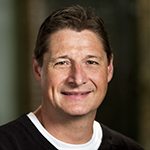 Nate Regier, Ph.D., is CEO and cofounding owner of Next Element, a global leadership training and certification firm specializing in communication and conflict skills. He’s an expert in social-emotional intelligence and leadership, positive conflict, neuropsychology, group dynamics, interpersonal and leadership communication, executive assessment, and coaching. Regier is a co developer of Next Element’s Leading Out of Drama® training and coaching system, an LOD® master trainer, and Process Communication Model® certifying master trainer. He is co-author of Beyond Drama: Transcending Energy Vampires. He’s an enthusiastic dad and husband.
Nate Regier, Ph.D., is CEO and cofounding owner of Next Element, a global leadership training and certification firm specializing in communication and conflict skills. He’s an expert in social-emotional intelligence and leadership, positive conflict, neuropsychology, group dynamics, interpersonal and leadership communication, executive assessment, and coaching. Regier is a co developer of Next Element’s Leading Out of Drama® training and coaching system, an LOD® master trainer, and Process Communication Model® certifying master trainer. He is co-author of Beyond Drama: Transcending Energy Vampires. He’s an enthusiastic dad and husband.
 Jamie Remsberg has spent her career mastering the nuances of team dynamics and the traits of leadership. She is co-developer and a certified LOD® master trainer of Next Element’s Leading Out of Drama®. She is a a master trainer in PCM and serves as a advisor to trainers and providers within Next Element’s network support system. As an advisor, facilitator and coach, she is willing to challenge habits and assumptions and facilitate healthy boundaries so that true potential is discovered and goals are reached.
Jamie Remsberg has spent her career mastering the nuances of team dynamics and the traits of leadership. She is co-developer and a certified LOD® master trainer of Next Element’s Leading Out of Drama®. She is a a master trainer in PCM and serves as a advisor to trainers and providers within Next Element’s network support system. As an advisor, facilitator and coach, she is willing to challenge habits and assumptions and facilitate healthy boundaries so that true potential is discovered and goals are reached.
“Bring it on down to Muni-Sim!” Using a Municipal Simulation in a Leadership Program – KLC EAST LOBBY – Friday 9:30 – 10:30 am – Collaborative Note Taking Google Doc
Tired of people falling asleep after lunch? A municipal simulation (Muni-Sim!) is a fun, creative, and immersive experience that gets participants out of their comfort zones and into adaptive problem solving. Learn how to manage the activity to keep it in the productive zone. “Debrief” with us on how the four leadership competencies can be experienced, and how that transfers to teaching leadership. Take away a Muni-Sim template. And, come experience Muni-Sim yourself as we set up a planning and zoning simulation that is easily adaptable to your leadership program.
 Teresa Kelly LOVES leadership. A 2014 alum of the NEJC Leadership NE program, she joined its Curriculum Committee after graduation and began facilitating in 2015. Teresa has completed the Kansas Leadership Center’s Level I and holds an Equine Facilitated Coaching Certification. She continues her credentialing through KLC as a leadership coach. She coaches individuals and groups through her practice, Coaching on Purpose. Teresa is a former City Councilor for Roeland Park, Kansas. She loves triathlons, the wilderness and riding her horse. She is married to the man of her dreams and has four children.
Teresa Kelly LOVES leadership. A 2014 alum of the NEJC Leadership NE program, she joined its Curriculum Committee after graduation and began facilitating in 2015. Teresa has completed the Kansas Leadership Center’s Level I and holds an Equine Facilitated Coaching Certification. She continues her credentialing through KLC as a leadership coach. She coaches individuals and groups through her practice, Coaching on Purpose. Teresa is a former City Councilor for Roeland Park, Kansas. She loves triathlons, the wilderness and riding her horse. She is married to the man of her dreams and has four children.
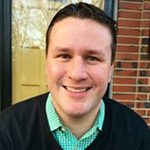 David E. Waters is a partner with the Lathrop Gage law firm in Kansas City, Missouri and Overland Park, Kansas. He has served on the City Council for the City of Westwood, Kansas since 2016. David was a member of the 2017 Class of Leadership Kansas, and graduated from the 2009 Northeast Johnson County Chamber of Commerce “Leadership Northeast” class. In 2015, he received the Kansas State University College of Arts & Sciences Young Alumni Award. He is married, the father of two sons, and has completed two marathons. You can follow him on Twitter @davidewaters.
David E. Waters is a partner with the Lathrop Gage law firm in Kansas City, Missouri and Overland Park, Kansas. He has served on the City Council for the City of Westwood, Kansas since 2016. David was a member of the 2017 Class of Leadership Kansas, and graduated from the 2009 Northeast Johnson County Chamber of Commerce “Leadership Northeast” class. In 2015, he received the Kansas State University College of Arts & Sciences Young Alumni Award. He is married, the father of two sons, and has completed two marathons. You can follow him on Twitter @davidewaters.
Bring it on Down to Muni Sim (pdf)
Creating Deliberate Holding Environments – SUNFLOWER ROOM – KHF 2nd Floor – Friday 4:15 – 5:15 pm – Collaborative Note Taking Google Doc
Adaptive change requires that leaders pay attention to the quality of the holding environments that they create. In our work designing leadership development programs for nonprofit leaders, we have identified important elements of an effective holding environment: data about performance, time to reflect, concrete tools and frameworks, resources to explore new experiments, and ongoing support from peers and experienced coaches. We’ll share what we have learned through the Nonprofit Leadership Academy hosted by the Blue Cross and Blue Shield of NC Foundation. We’ll provide ample time for leadership program developers to explore how they can create more productive holding environments.
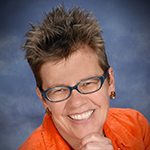
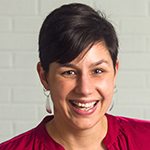 Meredith Emmett and Heather Yandow are an intergenerational team with 45 years of combined experience as staff members, board members, volunteers, and donors; and over 20 combined years of experience as consultants. As part of our work at Third Space Studio, we design and deliver the Nonprofit Leadership Academy, a signature program of the Blue Cross Blue Shield of NC Foundation. The Academy is a nine-month intensive learning lab for sixteen nonprofit organizations. Each organization sends a team of two board and staff leaders. Teams identify a “big question” for their organization and use the tools and frameworks, coaching, and financial resources of the Academy to work their questions. “Big questions” are adaptive challenges; the Academy is designed as a holding environment. Prior to co-founding Third Space Studio, Meredith served as executive director of three nonprofits including Public Allies of NC, a leadership program for young adults. Heather Yandow initiated the development, evaluation, and coalition programs of the NC Conservation Network. Heather is a founder of the Beehive Collective, a giving circle in Raleigh. We are both trained in adaptive leadership by Cambridge Leadership Associates. Meredith is certified in the case-in-point method by the Kansas Leadership Center.
Meredith Emmett and Heather Yandow are an intergenerational team with 45 years of combined experience as staff members, board members, volunteers, and donors; and over 20 combined years of experience as consultants. As part of our work at Third Space Studio, we design and deliver the Nonprofit Leadership Academy, a signature program of the Blue Cross Blue Shield of NC Foundation. The Academy is a nine-month intensive learning lab for sixteen nonprofit organizations. Each organization sends a team of two board and staff leaders. Teams identify a “big question” for their organization and use the tools and frameworks, coaching, and financial resources of the Academy to work their questions. “Big questions” are adaptive challenges; the Academy is designed as a holding environment. Prior to co-founding Third Space Studio, Meredith served as executive director of three nonprofits including Public Allies of NC, a leadership program for young adults. Heather Yandow initiated the development, evaluation, and coalition programs of the NC Conservation Network. Heather is a founder of the Beehive Collective, a giving circle in Raleigh. We are both trained in adaptive leadership by Cambridge Leadership Associates. Meredith is certified in the case-in-point method by the Kansas Leadership Center.
Holding Environment (pdf) – PowerPoint Slides (pdf)
Lessons from the trenches: Teaching the KLC Framework to people below or near the poverty line. – FLINT HILLS ROOM – KLC 2nd Floor East – Friday 4:15 – 5:15 pm – Collaborative Note Taking Google Doc
Please join Damon Young as he shares his journey of taking the KLC Framework to some of their employees at Mahaney Roofing Company. One of Damon’s favorite quotes is from John Maxwell, “Before you can lead someone, you first have to find them”, and on this leadership journey Damon found many of his employees near or below the line of poverty. As a result, a deeper dive into a framework for understanding poverty was necessary. You’ll hear about Ruby Payne’s model and how Damon used it as his lens for experimenting with this session of leadership training. Damon had taught other leadership concepts before to this group, but this was the first time that he did so really considering which resources the individuals may be lacking and using the KLC’s cartoon workbook.
You’ll learn, be challenged, and perhaps inspired as you hear some of the stories of this 6 month experiment. Then you will be asked to join the journey as this break out session will brainstorm next steps for Damon’s commercial roofing service team as they seek to transform the culture of their service department and assist the individuals in making progress in their personal lives. The goal is simple: Transformed individuals, families, company, and community through each member exercising more leadership!
 Damon Young has a passion for ideas and people and the connections they make to bring us together. Additionally, he seeks to leverage those ideas and relationships to make progress on difficult challenges. Damon brings a background in rhetoric, ministry, and construction. These diverse experiences have taught him to listen, engage and connect. Damon serves the community as a mentor, motivational speaker and trainer. He is vice president of Mahaney Roofing Company and is a partner in the consulting firm, Mayday Group with his wife Kate Young. Damon has a degree in Organizational Management and Leadership from Friends University.
Damon Young has a passion for ideas and people and the connections they make to bring us together. Additionally, he seeks to leverage those ideas and relationships to make progress on difficult challenges. Damon brings a background in rhetoric, ministry, and construction. These diverse experiences have taught him to listen, engage and connect. Damon serves the community as a mentor, motivational speaker and trainer. He is vice president of Mahaney Roofing Company and is a partner in the consulting firm, Mayday Group with his wife Kate Young. Damon has a degree in Organizational Management and Leadership from Friends University.
PowerPoint Slides (pdf)
Research: Pressing Questions from the Field of Practice – HIGH PLAINS ROOM – KLC 2nd Floor West – Friday 4:15 – 5:15 pm – Collaborative Note Taking Google Doc
Moderated by Tim Steffensmeier, Ph.D., Director, Kansas Leadership Center Research Initiative; Kansas State University.
 Tim Steffensmeier is the director of research at the Kansas Leadership Center (KLC). This is a joint appointment with Kansas State University where he is an associate professor and director of the Leadership Communication doctoral program at the Staley School of Leadership Studies. Steffensmeier’s publications focus on civic leadership, public deliberation, and rhetoric. This research has been grant funded by the National Science Foundation, Kettering Foundation, and Interactivity Foundation. Tim brings consulting experience with companies and communities on leadership development and communication skills. This includes serving as faculty for KLC since 2010. Tim is a former department head of Communication Studies at Kansas State University and served as editor for the Journal of Public Deliberation. Tim has a Ph.D. from the University of Texas, Austin and an M.A. from Wake Forest University.
Tim Steffensmeier is the director of research at the Kansas Leadership Center (KLC). This is a joint appointment with Kansas State University where he is an associate professor and director of the Leadership Communication doctoral program at the Staley School of Leadership Studies. Steffensmeier’s publications focus on civic leadership, public deliberation, and rhetoric. This research has been grant funded by the National Science Foundation, Kettering Foundation, and Interactivity Foundation. Tim brings consulting experience with companies and communities on leadership development and communication skills. This includes serving as faculty for KLC since 2010. Tim is a former department head of Communication Studies at Kansas State University and served as editor for the Journal of Public Deliberation. Tim has a Ph.D. from the University of Texas, Austin and an M.A. from Wake Forest University.
Exercising Leadership Inside the Bubble – KONZA TOWN HALL – Friday 4:15 – 5:15 pm – Collaborative Note Taking Google Doc
Demonstrate though case studies how difficult and risky it is to practice leadership inside the workplace with teams that could benefit from making progress. Each presenter will share their experience exercising leadership in their organizations. Participants will be engaged in evaluating and critiquing the interventions that were made and/or could be done differently. This session will be led by two practitioners who practice the KLC principles in the workplace while leading teams day-to-day. Participants will gain more confidence applying the KLC leadership competencies while leading in the workplace or community, developing curriculum, or coaching/facilitating the same.
 Geoff Mendal is a Director of Software Engineering at Pandora Media headquartered in Oakland, CA. His day-to-day job is to manage diverse teams focusing on software infrastructure. In 2012 Geoff attended the 8 day Harvard “The Art and Practice of Adaptive Leadership” executive education program where he met Ed O’Malley and Julia Fabris McBride. Previously he worked at Google, Microsoft, Talarian, Stanford University as well as co-founding two start-up software companies (both successful). He co-authored two software engineering books in the 1990s. Geoff is a professionally trained chef, collector of rare wines, and dabbles in tax planning tools.
Geoff Mendal is a Director of Software Engineering at Pandora Media headquartered in Oakland, CA. His day-to-day job is to manage diverse teams focusing on software infrastructure. In 2012 Geoff attended the 8 day Harvard “The Art and Practice of Adaptive Leadership” executive education program where he met Ed O’Malley and Julia Fabris McBride. Previously he worked at Google, Microsoft, Talarian, Stanford University as well as co-founding two start-up software companies (both successful). He co-authored two software engineering books in the 1990s. Geoff is a professionally trained chef, collector of rare wines, and dabbles in tax planning tools.
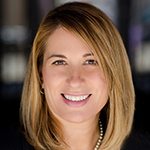 Patty Thierry Sheridan, MBA, RHIA, FAHIMA is passionate about health information management (HIM), leadership and volunteerism. She is senior Vice President of HIM Services for Ciox Health and is responsible for the strategy and execution of health information management solutions. Patty is the Chair of the Resurrection University Board of Directors for the College of Nursing and College of Allied Health and has held board positions in health information organizations. She is a frequent speaker and has published research articles on the topics of health information management and leadership. Patty has been studying and applying adaptive leadership since 2007.
Patty Thierry Sheridan, MBA, RHIA, FAHIMA is passionate about health information management (HIM), leadership and volunteerism. She is senior Vice President of HIM Services for Ciox Health and is responsible for the strategy and execution of health information management solutions. Patty is the Chair of the Resurrection University Board of Directors for the College of Nursing and College of Allied Health and has held board positions in health information organizations. She is a frequent speaker and has published research articles on the topics of health information management and leadership. Patty has been studying and applying adaptive leadership since 2007.
Creating a Constructive Culture through Coaching at Saint Francis Community Services – KLC EAST LOBBY – Friday 4:15 – 5:15 pm – Collaborative Note Taking Google Doc
Organizational Culture – the experiences that validate employees’ beliefs about an organization – is strongly shaped by an employee’s leader. When leaders are provided with tools to become coach-like in their interactions with their direct reports, direct reports feel empowered, trusted, and are able to make decisions that benefit their clients. By teaching leaders coach-like behaviors, they begin to support staff in ways that allow them to drive a constructive culture, and by driving a constructive culture, an agile, high-performing organization.
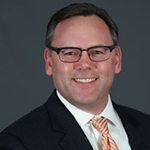 Tom Blythe is Chief Operating Officer at Saint Francis Community Services in Salina, KS where he provides strategic direction for residential programs, and child and family services programs consisting of adoption, reintegration, foster care and family preservation. Additionally he oversees Human Resources, training, systems improvement and international ministries. During his first two years with Saint Francis Tom has been instrumental in building an internal employee experience model helping Saint Francis to become a stronger, more integrated organization. Tom holds a bachelor’s degree in business administration from Drake University in Des Moines, and a master’s degree in human resources management from Webster University in St. Louis. His career has spanned a variety of management positions for hospitals and health systems in Illinois. Before joining Saint Francis Community Services in 2015, Tom was System Vice President for Human Resources at St. Mary’s Good Samaritan, an organization that included 1,900 health care workers and two acute-care hospitals, serving 300,000 people in a nine-county area of Illinois. In his spare time Tom enjoys spending time supporting his daughter who dances and plays softball.
Tom Blythe is Chief Operating Officer at Saint Francis Community Services in Salina, KS where he provides strategic direction for residential programs, and child and family services programs consisting of adoption, reintegration, foster care and family preservation. Additionally he oversees Human Resources, training, systems improvement and international ministries. During his first two years with Saint Francis Tom has been instrumental in building an internal employee experience model helping Saint Francis to become a stronger, more integrated organization. Tom holds a bachelor’s degree in business administration from Drake University in Des Moines, and a master’s degree in human resources management from Webster University in St. Louis. His career has spanned a variety of management positions for hospitals and health systems in Illinois. Before joining Saint Francis Community Services in 2015, Tom was System Vice President for Human Resources at St. Mary’s Good Samaritan, an organization that included 1,900 health care workers and two acute-care hospitals, serving 300,000 people in a nine-county area of Illinois. In his spare time Tom enjoys spending time supporting his daughter who dances and plays softball.
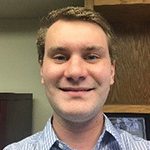 Ian Cummings is a New Jersey native and currently lives in Manhattan, Kansas. He holds a Master’s Degree in Industrial/Organizational Psychology from Emporia State University. He has worked at Saint Francis Community Services for 4 years in Performance/Process Improvement roles and is currently an Organizational Effectiveness Specialist, responsible for culture change and organizational development activities.
Ian Cummings is a New Jersey native and currently lives in Manhattan, Kansas. He holds a Master’s Degree in Industrial/Organizational Psychology from Emporia State University. He has worked at Saint Francis Community Services for 4 years in Performance/Process Improvement roles and is currently an Organizational Effectiveness Specialist, responsible for culture change and organizational development activities.
PowerPoint Slides (pdf)
Leadership Embodied – SUNFLOWER ROOM – KHF 2nd Floor – Saturday 11:15 am – 12:30 pm – Collaborative Note Taking Google Doc
What happens inside your body when you are leading effectively? How does this contrast with your felt experience of leading ineffectively? Attend this experiential session and get curious about what’s happening inside your body that either helps or hinders your leadership. We will explore basic concepts from neuroscience and somatic awareness and then invite you to experiment with the notion of personal bandwidth using art and movement. We will discuss how developing capacity to stay regulated and energized is both vital and difficult. And we will elevate the rich possibilities that exist when we bring our embodied selves to work.
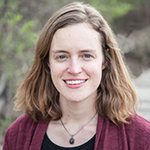 Sheersty Stanton, Glasswing Creative, has a Bachelor of Business Administration from Wichita State University and a Master of Science in Family Therapy from Friends University. Her education is enhanced by a strong professional background in communication, project/program management, leadership and civic engagement. Sheersty is an alumnus and former staff member of the KLC and recently became a KLC Certified Leadership Coach. Drawing on her experiences, Sheersty is excited to be experimenting with meaningful ways of coaching individuals toward their more integrated, embodied, authentic selves. She is married, has a three-year old daughter, and enjoys an active and artistic lifestyle.
Sheersty Stanton, Glasswing Creative, has a Bachelor of Business Administration from Wichita State University and a Master of Science in Family Therapy from Friends University. Her education is enhanced by a strong professional background in communication, project/program management, leadership and civic engagement. Sheersty is an alumnus and former staff member of the KLC and recently became a KLC Certified Leadership Coach. Drawing on her experiences, Sheersty is excited to be experimenting with meaningful ways of coaching individuals toward their more integrated, embodied, authentic selves. She is married, has a three-year old daughter, and enjoys an active and artistic lifestyle.
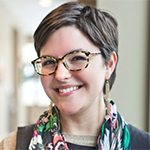 Brittany Crabtree is a senior strategist at jones huyett Partners and leadership coach with the Kansas Leadership Center. She is also a yoga teacher at Crestview Community Center in Topeka, Kansas and approaches teaching yoga as an extension of her leadership training (specifically in the area of managing self). She has a strong background in public relations, having served as assistant press secretary under Governor Sebelius and director of education & marketing for LeadingAge Kansas. Brittany previously served as executive director of the Kansas Volunteer Commission under Governor Brownback, where she oversaw the rebranding and realignment of the organization with the Kansas State Department of Education. Brittany also served in the Obama Administration as a state program specialist with the Corporation for National and Community Service. In this role, she oversaw compliance in four states – Kansas, Missouri, Oklahoma and Louisiana. She also enjoys traveling & getting outside. Recent trips include camping solo in the Mt. Evans Wilderness in Colorado and spending a week in a yurt in Arkansas. Now Brittany and her partner, Chris, are preparing for their next big adventure – the arrival of their first child in August 2018.
Brittany Crabtree is a senior strategist at jones huyett Partners and leadership coach with the Kansas Leadership Center. She is also a yoga teacher at Crestview Community Center in Topeka, Kansas and approaches teaching yoga as an extension of her leadership training (specifically in the area of managing self). She has a strong background in public relations, having served as assistant press secretary under Governor Sebelius and director of education & marketing for LeadingAge Kansas. Brittany previously served as executive director of the Kansas Volunteer Commission under Governor Brownback, where she oversaw the rebranding and realignment of the organization with the Kansas State Department of Education. Brittany also served in the Obama Administration as a state program specialist with the Corporation for National and Community Service. In this role, she oversaw compliance in four states – Kansas, Missouri, Oklahoma and Louisiana. She also enjoys traveling & getting outside. Recent trips include camping solo in the Mt. Evans Wilderness in Colorado and spending a week in a yurt in Arkansas. Now Brittany and her partner, Chris, are preparing for their next big adventure – the arrival of their first child in August 2018.
Experiential Methods for Leadership Education – FLINT HILLS ROOM – KLC 2nd Floor East – Saturday 11:15 am – 12:30 pm – Collaborative Note Taking Google Doc
This session reviews technical vs. adaptive work as a typology for understanding how leadership is a function of the type of work a team has undertaken. Two activities then help participants “catch themselves in the act of being themselves” as problem solvers. Afterward, we explore the leadership and teamwork that showed up experimentally during the exercises. We discern the educational value of these experiential activities for illustrating the distinctions of problem/work type, the leadership that supports such work, and the teamwork that results. Finally, we reflect on implications for using experiential methods in one’s practice of leadership education.
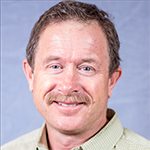 Paul Duba teaches for his clients’ potential as human beings to find efficacy and agency in working well with others. His clients report finding new perspectives, increased self-awareness, and a transformation in their sense of what is possible. Grounded in the scholarship of contemporary theorists, he facilitates a dynamic learning laboratory that helps participants explore the intersection of leadership and teamwork. In so doing, he moves you to a better understanding of yourself as a leader, the change for which you are ready, and the reach you need to put this learning to work in your life.
Paul Duba teaches for his clients’ potential as human beings to find efficacy and agency in working well with others. His clients report finding new perspectives, increased self-awareness, and a transformation in their sense of what is possible. Grounded in the scholarship of contemporary theorists, he facilitates a dynamic learning laboratory that helps participants explore the intersection of leadership and teamwork. In so doing, he moves you to a better understanding of yourself as a leader, the change for which you are ready, and the reach you need to put this learning to work in your life.
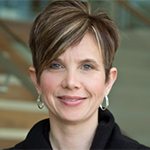 Gina Maree Bonfiglio-Speer, LSCSW, is the President of Innovative Leadership Strategies, LLC and trained at the Harvard Kennedy School of Government on the art and practice of leadership development. She has 20 years experience working in the public and private sector. She is the former Vice President for Health Policy at the Kansas Health Institute and continues to serve as the lead for curriculum development for the Kansas Legislative Health Academy. Gina is a licensed clinical social worker and the cofounder of the Trauma Healing and Recovery Institute (THRIVE). Gina earned a Master’s Degree in Social Work from the University of Kansas.
Gina Maree Bonfiglio-Speer, LSCSW, is the President of Innovative Leadership Strategies, LLC and trained at the Harvard Kennedy School of Government on the art and practice of leadership development. She has 20 years experience working in the public and private sector. She is the former Vice President for Health Policy at the Kansas Health Institute and continues to serve as the lead for curriculum development for the Kansas Legislative Health Academy. Gina is a licensed clinical social worker and the cofounder of the Trauma Healing and Recovery Institute (THRIVE). Gina earned a Master’s Degree in Social Work from the University of Kansas.
Adaptive Technical Defined (pdf) – PowerPoint Slides (pdf)
Research: Prioritizing Initial Studies – HIGH PLAINS ROOM – KLC 2nd Floor West – Saturday 11:15 am – 12:30 pm – Collaborative Note Taking Google Doc
Moderated by Tim Steffensmeier, Ph.D., Director, Kansas Leadership Center Research Initiative; Kansas State University.
 Tim Steffensmeier is the director of research at the Kansas Leadership Center (KLC). This is a joint appointment with Kansas State University where he is an associate professor and director of the Leadership Communication doctoral program at the Staley School of Leadership Studies. Steffensmeier’s publications focus on civic leadership, public deliberation, and rhetoric. This research has been grant funded by the National Science Foundation, Kettering Foundation, and Interactivity Foundation. Tim brings consulting experience with companies and communities on leadership development and communication skills. This includes serving as faculty for KLC since 2010. Tim is a former department head of Communication Studies at Kansas State University and served as editor for the Journal of Public Deliberation. Tim has a Ph.D. from the University of Texas, Austin and an M.A. from Wake Forest University.
Tim Steffensmeier is the director of research at the Kansas Leadership Center (KLC). This is a joint appointment with Kansas State University where he is an associate professor and director of the Leadership Communication doctoral program at the Staley School of Leadership Studies. Steffensmeier’s publications focus on civic leadership, public deliberation, and rhetoric. This research has been grant funded by the National Science Foundation, Kettering Foundation, and Interactivity Foundation. Tim brings consulting experience with companies and communities on leadership development and communication skills. This includes serving as faculty for KLC since 2010. Tim is a former department head of Communication Studies at Kansas State University and served as editor for the Journal of Public Deliberation. Tim has a Ph.D. from the University of Texas, Austin and an M.A. from Wake Forest University.
Provocation and Disturbance: Are they Necessary for Leadership Education? – KONZA TOWN HALL – Saturday 11:15 am – 12:30 pm – Collaborative Note Taking Google Doc
Provocation is a misunderstood concept in the leadership lexicon. Most adaptive practitioners have been trained to believe that provocation is an essential part of the leadership educator’s repertoire but many also acknowledge that they are hesitant to provoke. Such hesitance arises from some misconceptions about provocation and how it can be utilized. This session will explore a wider understanding of provocation; will expand the range of options and methods available to provoke and will discuss and demonstrate the relevance of provocation and disturbance to the craft; and to the exercise of leadership itself.
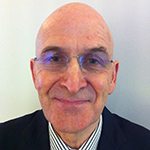 Michael Johnstone (BA, MSocSci, PhD, MAPsS, CMC), Co-Founder and Executive Director of Vantage Point Consulting, is consultant, educator, facilitator, coach and author with over thirty years’ experience in individual, organisational and leadership development. He is recognised as an innovator in experiential learning, particularly in developing Case in Point methodology.
Michael Johnstone (BA, MSocSci, PhD, MAPsS, CMC), Co-Founder and Executive Director of Vantage Point Consulting, is consultant, educator, facilitator, coach and author with over thirty years’ experience in individual, organisational and leadership development. He is recognised as an innovator in experiential learning, particularly in developing Case in Point methodology.
He facilitates several national and international executive leadership programs and is sought after for his expertise in adaptive leadership, building leadership and facilitator capacity, executive coaching and human systems. Dr. Johnstone has a BA from the University of Auckland (NZ), a MSocSci (cum laude) from the Hebrew University of Jerusalem and a PhD from the Australian National University. Michael is a Member of the Australian Psychological Society, a (past) Member of the Institute of Group Leaders and a Member of the Institute of Management Consultants of Australia.
Dr. Johnstone was visiting faculty at the Kennedy School of Government and Centre for Public Leadership at Harvard University from 1999 to 2015; has been faculty at Australian and New Zealand School of Government, Sydney University and the Australian National University. He also is part of the inaugural faculty for the Australian Adaptive Leadership Initiative. Recent clients include the Australian Public Service Commission, the Australian Treasury, the Scottish Government, Google, Perkin Elmer, Cobel Darou, Cambridge Leadership Associates and the Global Leadership Institute (Israel).
Forms of Provocation (pdf) – PowerPoint Slides (pdf)
